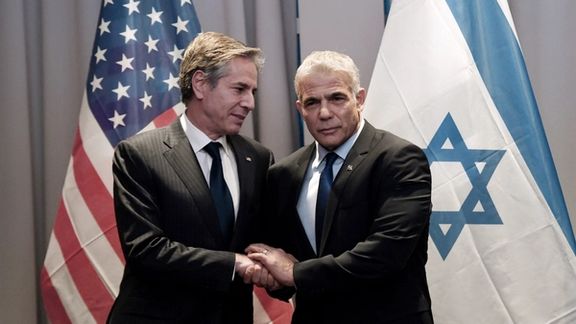Ukraine Fall-Out Adds Heat To Iran Nuclear Talks

Rafael Mariano Grossi, the UN nuclear monitoring chief, highlighted Monday Ukraine and Iran as “two major issues high on the international community’s agenda.”

Rafael Mariano Grossi, the UN nuclear monitoring chief, highlighted Monday Ukraine and Iran as “two major issues high on the international community’s agenda.”
In his statement to the board of the International Atomic Energy Agency (IAEA), Grossi said the IAEA was monitoring the “precarious situation at Ukraine’s nuclear sites” where there had been an “unprecedented danger of a nuclear accident,” following a Russian shell hitting the Zaporizhzhya nuclear power plant.
Over Iran, Grossi confirmed that following his visit to Tehran Saturday, the agency was expecting by March 20 “written explanations, including related supporting documents” from Iran over the agency’s questions about Iranian nuclear work at three sites before 2003.
Grossi agreed in meetings with Mohammad Eslami, head of the Atomic Energy Agency of Iran (AEOI), to clear up these matters by June 20. This timetable eased fears in Vienna they might stymie talks in the Austrian capital aimed at reviving the 2015 Iran nuclear deal, the JCPOA (Joint Comprehensive Plan of Action).
Further consultations
Iran’s official news agency IRNA reported Monday that Iran’s lead negotiator Ali Bagheri-Kani was returning to Tehran for further consultations as expert groups continued work in Vienna.
While the nuclear talks have since April 2021 struggled to agree which United States sanctions contravene the JCPOA, and exactly how the expanded Iran nuclear program could be returned to JCPOA limits, the Ukraine crisis has stirred the pot.
Russian foreign minister Sergei Lavrov suggested Saturday that any sanctions against Russia over Ukraine should not affect the JCPOA and trade relations with Iran. "And we'd like to receive an answer, a very clear answer; we need guarantees that these very sanctions won't affect the regime of trade-economic and investment ties embedded in the Joint Comprehensive Plan of Action on the Iranian nuclear program," Lavrov told reporters in Moscow.
"Agreements on reinstating the JCPOA imply a set of reciprocal obligations, such as Iran's obligations as to the volume and parameters of its civilian nuclear program, and obligations of the other participants to make sure that projects for the development of civilian nuclear energy in full compliance with the Treaty on the Non-Proliferation of Nuclear Weapons, in full compliance with and under control of the IAEA, with support from Russia, China, and other countries, will be implemented," Lavrov explained.
Nuclear blackmail
Anonymous diplomats, including a French presidential official, called this “blackmail,” suggesting Moscow intends to use the JCPOA as a way to circumvent Ukraine sanctions. Some Iranian media outlets claimed Russia wanted to wreck the Vienna talks, perhaps to keep Tehran’s oil off world markets.
But the Iranian foreign ministry Monday reported a phone call between Foreign Minister Hossein Amir-Abdollahian and Lavrov in which Amir-Abdollahian agreed that Tehran’s relations with Russia should not be upset by further sanctions.
"We are against both war and sanctions,” the Iranian foreign minister said, while Lavrov had again backed Iran’s “logical demands” in the Vienna talks.
Also dealing with the fallout of the Ukraine crisis, Israeli foreign minister Yair Lapid, meeting US Secretary of State Anton Blinken in Riga, admitted to “differences” with Washington over Iran. Lapid called the agreement being readied in Vienna “bad and ineffective.”